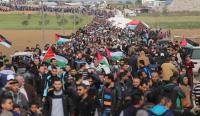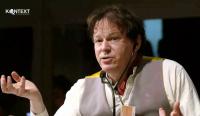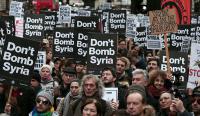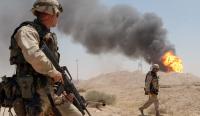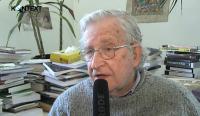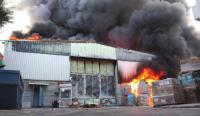Since the inception of the Oslo Agreement in 1993 the Westbank has been more and more fragmented and its parts isolated from each other by Israeli settlements, roads and walls. Today there are more than 200 enclaves in the Westbank, in which Palestinians have to live. The crossings, controlled by 600 checkpoints, are restricting any movements. To the Jordan valley Palestinians only have limited access. This makes it impossible for the inhabitants to live a normal life while they continue to be dependent on international aid. The Israeli government refuses “to share the land with the Palestinians”, says Roy. Many Israelis essentially want peace but are not willing to acknowledge the injustice and look away. This is fatal as real understanding of the Palestinians situation is key to any solution of the conflict.
Sara Roy, Senior Research Scholar at the Center for Middle Eastern Studies, Harvard University
David Goeßmann: As you said, the West Bank is called an archipelago. So why is that? And what does it mean?
Sara Roy: One of the, the terms of the Oslo agreements was to canonize the West Bank to divide the West Bank into areas A, B, and C. And again, I would like to say that all of this information, all of this, everything I'm saying all the data I'm providing, which is just touching, you know, the tip of the iceberg is available. There is a huge body of literature on everything I'm saying from a variety of sources, international agencies, World Bank, IMF, all kinds of financial institutions, Israeli sources, Palestinian sources, European sources, so People want to educate themselves on these issues that the material is there.
Of course, there's nothing like going there and seeing it for yourself to really understand the impact that it has on people's lives. But what it is, is dividing, taking the West Bank and dividing it into different areas. Area A was under full Palestinian control, which again, is somewhat of a misnomer because nothing there is completely under independent Palestinian control. But area is area A refer to the cities, the main cities in the West Bank, and Area B was shared civilian control, the Palestinians had civil control, the Israelis had security control, and Area C, which occupies 60% or so of the West Bank is under complete and total Israeli control.
So, you think of it as a piece of Swiss cheese. Okay, so you have holes, and the holes, some of the holes are many of the holes are under Palestinian control, and the area between the holes are under Israeli control. I mean, that's somewhat of a simple oversimplification. But conceptually, I think it's a way of helping people understand what that means. So, in effect, it doesn't really matter how many holes the Palestinians may control. What matters is the movement between the holes, which they don't have much control over. So, what you have is a series of little cantante or enclaves, and by one count, and I forget the source was an international NGO. But they estimated that there were 227 enclaves that will cantons that Palestinians living. And so, what this means is that people have people are confined to varying degrees to these holes to these areas, their ability to move from point A to point B is difficult, in some cases restricted.
And the majority of the West Bank is under full Israeli control to which Palestinians have no access, or highly restricted access, if you're talking about the Jordan Valley. So, it's a situation where people are increasingly confined to smaller and smaller amounts of land. You know, I have friends who live in the northern part of the West Bank, and for them to travel from the north to the southern West Bank, is very difficult. It's extremely difficult. And so many of them decide that they don't want to move from point A to point B, because they have no guarantee that they're going to get there. They waste a lot of time. And more importantly, they waste a lot of money trying to move because they have to go through a series of checkpoints. It's not always there's no guarantee that you're going to, you know, successfully get through those checkpoints.
There are certain areas from which they're barred. There are, you know, there's a whole settlement infrastructure in the West Bank, besides the settlements, you have a road system to which that connect settlements to each other. And Palestinians cannot drive on these roads, or in some cases have restricted access to these roads. So, it is it is a situation where day by day, the encroachment on Palestinians grows greater and greater.
I mean, the settlements are expanding. The infrastructure that goes along with those settlements, is also expanding. And the ability of Palestinians to live and work on their own land has decreased very dramatically. And of course, you also have the separation wall that weaves through the West Bank, as well. And if this wall were meant to as a security border, it would run along the green line between the West Bank border or the West bank's border with Israel. But it doesn't it juts into the West Bank and the wall is a land grab, it's an attempt to de facto annex as much Palestinian land on the Israeli side of the wall as they can. And so, Palestinians are increasingly forced to live in smaller and smaller areas, they are cut off in many cases from access to their agricultural land. You know, there are many situations where Palestinians live on one side of the wall, and their land which they farmed for generations or for many, many years is on the other side of the wall. And in some cases, you know that they have access on certain days certain times, which is again, not always guaranteed, but of course, it should change the whole, it changes the whole framework in which people live and function.
And many people have lost their land. The land has been taken away, has been confiscated. And this occurred from the beginning of Oslo with the with the approval of the Palestinian Authority, I might add that lands were taken to build settlement roads, and eventually, you know, lands were taken, of course, Palestinian lands were taken to build the separation wall.
And this is what you know, is meant by an archipelago, you have cantons and areas. And people increasingly, are living in these very, you know, constricted areas, because it is difficult for them to move. And in some cases, they are restricted from major parts of their own, you know, their own land in the West Bank. And, of course, there are massive restrictions on water use the disproportionate use of water, I read a recent figure where Israeli settlers have 300 liters per capita, compared to 70 liters per capita given to Palestinians. In some villages in the West Bank, or towns in the West Bank, people don't have water for days. So, you know, it's a, it's a situation, this is what I mean by violence, it's a form of occupation, is a form of institutionalized violence against people. It's not just about armed conflict, it's about the theft of land, the theft of water, the destruction of homes, as I said, and, and fundamentally, it's, it's, it's eliminating the ability of people to work and take care of their families, to provide for their children, and to live an ordinary normal life that all of us want, whether we live here in America, or in Germany, or in France, or anywhere else.
And this is the this is the, for me, the greatest tragedy. And, and it's, it's a crime. And I don't understand I truly don't understand what Israel feels they are accomplishing by doing this. Because these two people live together. And they live very closely together, and no amount of separation fundamentally is possible. You can build all the walls you want; you can build all the barriers you want and checkpoints, I believe they're almost 600 checkpoints now of varying kinds. In the West Bank, you can cut off Gaza, you can isolate Gaza, but you're talking about areas that are 10s of miles in distance from each other. So, there's no amount of separation truly, that's possible or sustainable over time. Israelis live with Palestinians and Palestinians live with Israelis. And these two peoples are destined to live together.
And I don't understand what the Israeli government feels, and successive Israeli governments have felt they are achieving, by treating people in this manner. This is a contest despite what anybody will say this is fundamentally a contest over territory. It's not a fight about religion, and hopefully it will never become that, because then it becomes truly intractable. It's a fight over land. And the unwillingness, fundamentally, of the Israeli government to share the land. For me, one of the saddest aspects of all this, too, is that most Israelis, my family included, who live in Israel, who I love dearly, who are wonderful, decent people have no concept. They have absolutely no concept of what life is like for Palestinians, just you know, 30 or 40 miles down the road. They don't want to know. It's easier not to know. And they have no real understanding, nor have they ever, in my view, had any real understanding of their own government's policies in these areas, and what has been happening to Palestinians over time, and certainly why it's been happening over time.
And I truly believe that Israelis want peace. I truly believe that if they felt secure, if they felt that they could reach, as a friend of mine said, a mutually unacceptable arrangement with Palestinians, that people would opt for it. I don't believe based on my experience with my family and my many friends in Israel, that people want to live in a state of insecurity. But of course, the question is, how do you – after all these years, how do you get people to the point where they're prepared to trust. But I also feel that if Israelis had a better understanding of what is really happening inside the territories, truly what is happening, and what, what is the way in which Palestinians have been forced to live, and the kinds of conditions that they are forced to endure. If there was a greater understanding, and connection between people, I would like to believe, and I do believe that there would be change for the better. But again, you know, Oslo, going back to Oslo, and to the canonization and the whole archipelago issue.
It is designed to, to separate people from each other to separate Israelis from Palestinians. And from the beginning of the occupation. The idea was never to integrate Palestinians into Israel or Israelis into the territory, the idea was to keep the population separate, but there was interaction. You had Palestinian workers entering Israel on a daily basis, now they would go home at night, okay, but they did enter and there was interaction, and I witnessed it many, many times over these last two and a half decades or more. But that ended, and there is very little interaction, and it ended effectively with Oslo. With the so-called peace process, the separation not only of the West Bank and Gaza and also the sort of internal separation of people, but it also very much restricted and eventually ended interaction between Palestinians and Israelis.
Now you do have West bankers entering Israel now to work, they work on settlements, they work inside Israel as well. Gaza is completely cut off. And in the past, historically, you had a huge percentage of Gaza's labor force working inside Israel. So, the idea was to cut off any kind of human interaction between Palestinians and Israelis. And this has been very damaging. In my view for both peoples.
